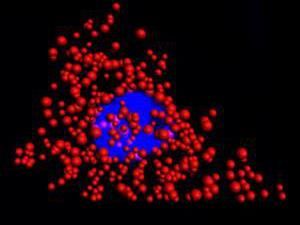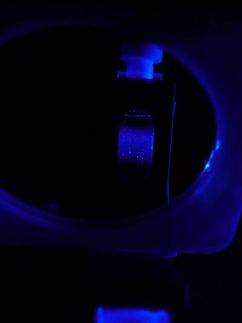Singapore scientists synthesize gold to shed light on cells' inner workings
Highly fluorescent gold nanoclusters for sub-cellular imaging have been synthesized by researchers at the Institute of Bioengineering and nanotechnology (IBN), one of the research institutes of Singapore's A*STAR (Agency for Science, Technology and Research).
Measuring less than 1 nanometer in diameter, IBN's gold clusters are much smaller than currently available nanoscale imaging technologies such as semiconducting quantum dots, which are usually at least 3 nanometers in size.
Unlike quantum dots, the gold nanoclusters are suitable for use within the body because they do not contain toxic metals such as cadmium and lead.
This invention, which has broad implications for biolabeling and disease diagnosis, was recently published in the Journal of the American Chemical Society.
The gold nanoclusters' sub-nanometer size makes it easy to target the nucleus inside the cell for sub-cellular biolabeling and bioimaging. Tracking the cell nucleus can help scientists monitor the fundamental life processes of healthy DNA replication and any genomic changes. With improved bioimaging at the cell nucleus, scientists can also study the effectiveness of drug and gene therapies.
"Gold nanoclusters have promising characteristics for applications in vivo. Our materials are smaller, less toxic and more biocompatible than the existing inorganic fluorescent quantum dot tags. The red fluorescence of the nanoclusters enhances biomedical images of the body greatly as there is reduced background fluorescence and better tissue penetration," said IBN Postdoctoral Fellow Jianping Xie, Ph.D.
Synthesized via a single-step reaction at body temperature (37°C), the gold nanoclusters are formed with a commercially available common protein such as bovine serum albumin (BSA). "The protein holds and interacts with gold ions in aqueous solution. We are able to use this protein to provide a scaffold for the formation of gold nanoclusters," explained Yuangang Zheng, Ph.D., IBN Senior Research Scientist.
The synthesis of the gold nanoclusters does not involve toxic chemicals or high temperatures. A single reaction with a protein is all that is required to produce scalable quantities of stable gold nanoclusters.
IBN's gold nanoclusters are stable in aqueous solution as well as in the solid form, which facilitates their storage and distribution. Besides the low cost of the required reagents, the preparation of the gold nanoclusters also adopts an environmentally friendly method that does not involve toxic chemicals or high temperatures. In addition, the simple synthesis technique can be scaled up easily for mass production.
"We are inspired by nature's ability to create elegant and functional materials. Our process is similar to biomineralization in nature that is found in the formation of bones and shells: where functional proteins mostly interact with sequestered inorganic ions to provide scaffolds for mineral formation," said IBN Principal Investigator and Executive Director Jackie Y. Ying, Ph.D. "There is a significant potential for our technology to impact biological and medical research, where our gold nanoclusters can significantly enhance the details available for precision bioimaging in medical diagnosis and treatment."
Original publication: Journal of the American Chemical Society 2009, 131, 888-889
Most read news
Other news from the department science
These products might interest you
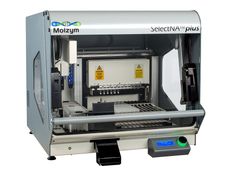
Micro-Dx™ CE IVD by Molzym
Fully automated from sample to PCR analysis
Rapid identification of bacteria and fungi without time-consuming cultivation
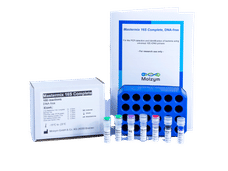
DNA-free Taq Polymerases and Mastermixes by Molzym
DNA-free reagents for unrivalled sensitivity in molecular biology
Purity that makes the difference
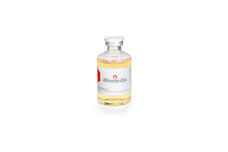
Recombumin® Elite by Sartorius
ICHQ7 cGMP-compliant albumin for biotechnological applications
Increase consistency and safety for gene therapies and vaccines
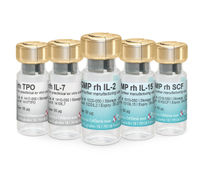
CellGenix® Growth Factors and Cytokines by Sartorius
Recombinant growth factors without animal products
Optimised cell culture for T cells and MSCs in gene therapy

Greener Alternative Products by Merck
Sustainable laboratory products for environmentally conscious research
Over 2,500 ecological alternatives to reduce your laboratory footprint

Get the life science industry in your inbox
By submitting this form you agree that LUMITOS AG will send you the newsletter(s) selected above by email. Your data will not be passed on to third parties. Your data will be stored and processed in accordance with our data protection regulations. LUMITOS may contact you by email for the purpose of advertising or market and opinion surveys. You can revoke your consent at any time without giving reasons to LUMITOS AG, Ernst-Augustin-Str. 2, 12489 Berlin, Germany or by e-mail at revoke@lumitos.com with effect for the future. In addition, each email contains a link to unsubscribe from the corresponding newsletter.
